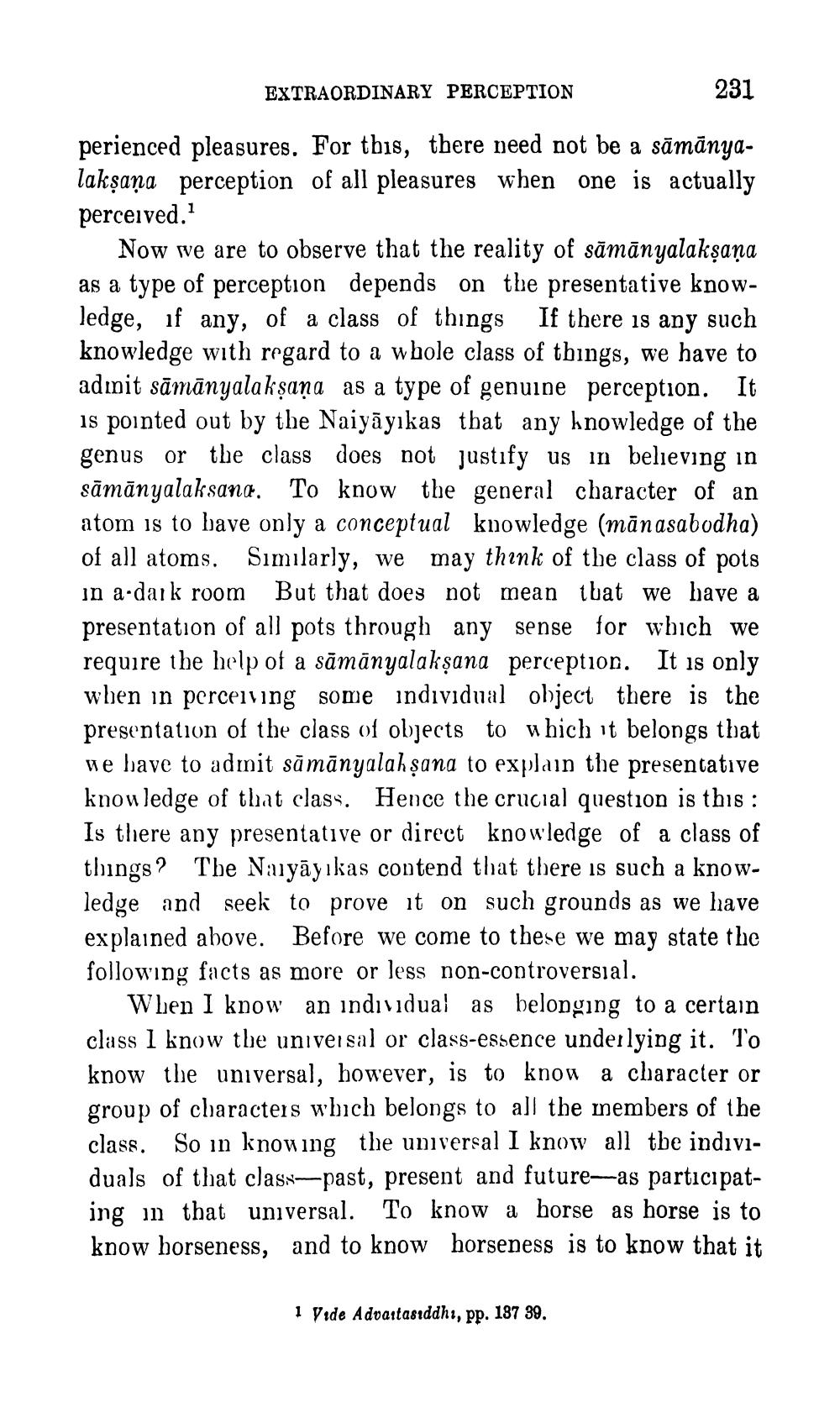________________
EXTRAORDINARY PERCEPTION
231
perienced pleasures. For this, there need not be a sāmānyalakşaņa perception of all pleasures when one is actually perceived."
Now we are to observe that the reality of sāmānyalaksana as a type of perception depends on the presentative knowledge, if any, of a class of things If there is any such knowledge with regard to a whole class of things, we have to adınit sāmānyalakṣaṇa as a type of genuine perception. It is pointed out by the Naiyāyikas that any knowledge of the genus or the class does not justify us in believing in sāmānyalaksana. To know the general character of an atom is to bave only a conceptual knowledge (mānasabodha) of all atoms. Similarly, we may think of the class of pots in a dark room But that does not mean ibat we have a presentation of all pots through any sense for which we require the help of a sāmānyalaksana perception. It is only when in perceiving some individual object there is the presentation of the class of objects to which it belongs that we have to admit sāmānyalahşana to explain the presentative know ledge of that class. Hence the crucial question is this : Is there any presentative or direct knowledge of a class of things? The Naiyāyıkas contend that there is such a knowledge and seek to prove it on such grounds as we have explained above. Before we come to these we may state the following facts as more or less non-controversial.
When I know an individual as belonging to a certain class I know the universal or class-essence underlying it. To know the universal, however, is to know a character or group of characters which belongs to all the members of the class. So in knowing the universal I know all the individuals of that class-past, present and future-as participating in that universal. To know a horse as horse is to know horseness, and to know horseness is to know that it
i Vide Advantasıddhı, pp. 137 39.




